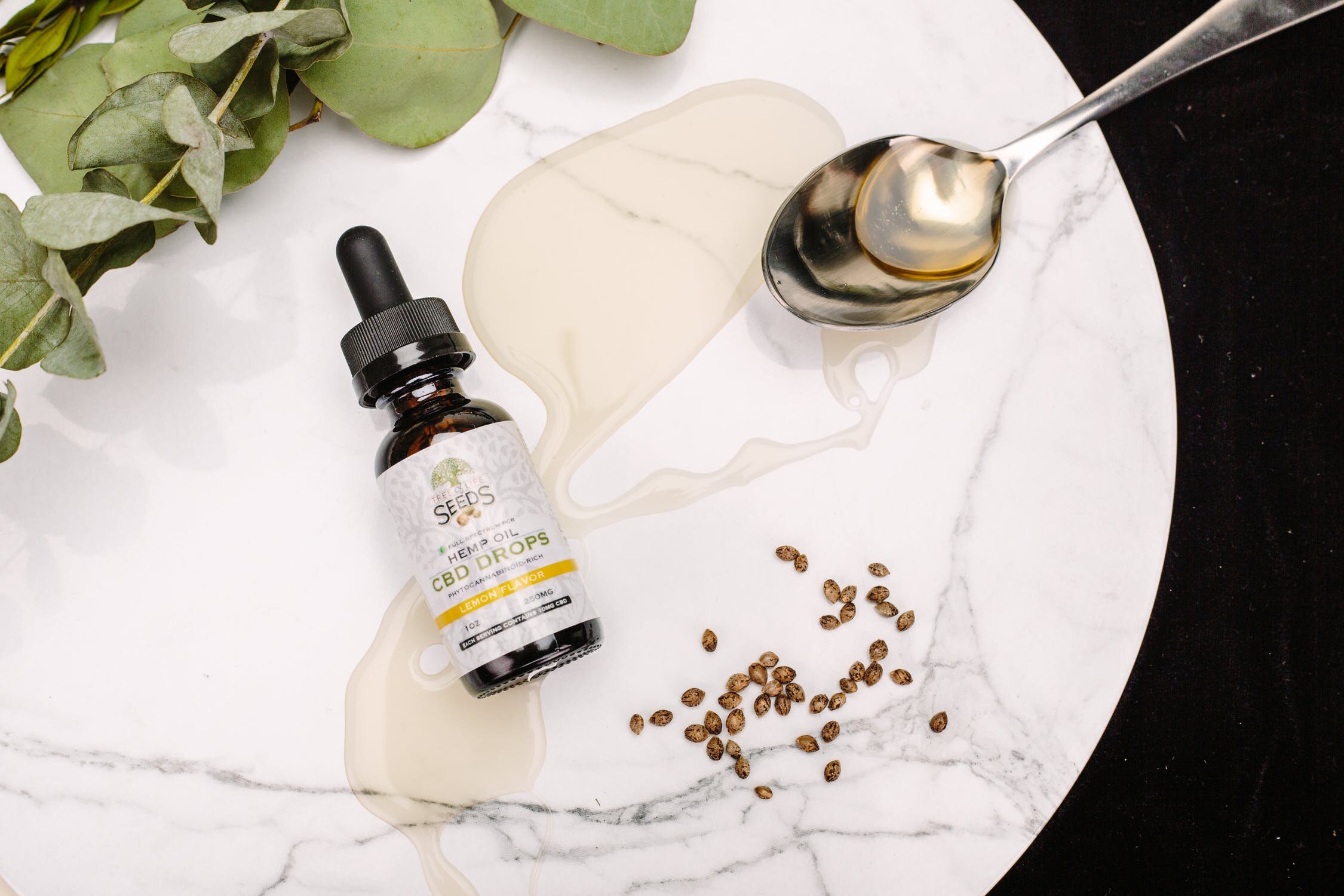Amy’s Kitchen: Becoming a B Corp. During Wildfires, a Pandemic, and Unprecedented Demand
Photo: Wikimedia Commons
This article originally appeared in Presence Marketing’s April 2021 Industry Newsletter
By Steven Hoffman
Amy’s Kitchen’s President and CEO Xavier Unkovic was recently featured among other Northern California food business leaders in the North Bay Business Journal. Last fall, the company became a certified B Corp. as if faced the challenges of keeping workers safe and securing its supply chain during the pandemic; wildfires in two of the three regions in which the company operates; and unprecedented demand for its products, as plant-based and frozen foods both have experienced a surge in sales. “Over the course of the past year, we faced some of the greatest challenges in the company’s history,” Unkovic told the Journal. “Since our start, our founders have strived to do the right thing, even when it wasn’t the easiest, and this certification validates those efforts and provides us with a benchmark from which to measure our continued progress.” The company had sales approaching $600 million in 2020, a double-digit increase over 2019, reported Food Navigator-USA.
Large-scale Study Finds No Evidence of Liver Toxicity from Oral CBD Products
Photo: Pexels
This article originally appeared in Presence Marketing’s April 2021 Industry Newsletter
By Steven Hoffman
CBD products do not cause liver damage when taken orally, according to preliminary results of a seven-month clinical investigation conducted by Validcare in response to the FDA’s request to help inform the agency’s regulatory approach regarding products containing hemp-derived CBD. Twelve companies, including CBD market leader Charlotte’s Web, helped support the study. Preliminary findings showed no evidence of liver disease in the 839 participants in the study, and no increase in the prevalence of elevated liver function tests when compared to a population with a similar incidence of medical conditions. The Validcare study’s findings were shared with the FDA when researchers met with the agency on March 15 to review preliminary liver safety results in the form of an abstract, reported Nutra Ingredients-USA. “We are encouraged by these findings and hopeful this study provides FDA with sufficient science-based data to determine and take action on a safe regulatory path forward,” said Keith Aqua, M.D., co-principal investigator of the study.
Organic Farming Could Boost Carbon Sequestration by Double Digits, New Study Says
Photo: Pexels
This article originally appeared in Presence Marketing’s April 2021 Industry Newsletter
By Steven Hoffman
In a meta-analysis of more than 4,000 studies, researchers found that organic farmers could increase the amount of carbon captured in the soil by double digits by adopting best organic farming practices. The study was published in the journal Agriculture, Ecosystems and Environment by researchers at the University of Maryland in collaboration with The Organic Center, a nonprofit research and education organization based in Washington, D.C. Examining different practices such as the use of organic soil amendments, conservation tillage and cover crops, the researchers found that best practices in organic soil amendments, such as compost and manure, had the biggest and fastest impact on carbon sequestration, by an average of 24%. “The study is the first of its kind – looking within organic management to not only highlight the areas where organic excels at locking greenhouse gas in the soil, but also identifying the areas that have the biggest beneficial impact, enabling organic growers to maximize their ability to fight climate change,” said Jessica Shade, Ph.D., Director of Science Programs for The Organic Center. The study identified four practices that are most critical to good soil health, including planting cover crops; applying combinations of organic inputs; increasing crop rotation diversity and length; and conservation tillage. The Organic Center highlighted the report’s main findings here.
Global Earth Day Live Broadcast, April 22, Includes Focus on Regenerative Agriculture
Photo: Pexels
This article originally appeared in Presence Marketing’s April 2021 Industry Newsletter
By Steven Hoffman
The global organizer of Earth Day, Earthday.org, will present its second Earth Day Live digital event on April 22, 2021. The theme of the multi-hour, multi-channel livestream event, beginning at noon Eastern Time, is Restore Our Earth. Topics include regenerative agriculture, climate and environmental literacy, equity and environmental justice, climate restoration technologies and more. “The agriculture sector is one of the largest contributors to climate change, and regenerative agriculture has the power to change that by rehabilitating our soils and enhancing our ecosystem,” Jillian Semann, Earth Day Network’s Food and Environment Director, said in a statement. "This Earth Day, we have an important opportunity to challenge world leaders to see climate change for what it is – a pressing global security threat, one that threatens everyone and everything but particularly our most vulnerable people and places," said Kathleen Rogers, President of Earthday.org. Learn more at www.earthday.org/earth-day-2021.
Union President Calls Boulder King Soopers Employees Heroes After Mass Shooting
Photo: Wikimedia Commons
This article originally appeared in Presence Marketing’s April 2021 Industry Newsletter
By Steven Hoffman
Among the 10 community members killed in Boulder, CO, in a mass shooting on March 22 were three employees of King Soopers’ Table Mesa location, the store in which the horrific crime took place. An Instacart shopper also died in the tragic shooting. In a year where workers have served on the front line of a pandemic, the shooting episode served as a stark reminder of the risks retail workers face on the job, reported Business Insider. Yet, when a gunman started shooting at King Soopers’ popular South Boulder location, grocery store employees helped get customers out of harm’s way, said Kim Cordova, President of United Food and Commercials Workers (UFCW) Local 7. In an interview with Denver’s 9News, the local union leader repeatedly used one word to describe the workers: “heroes.” Cordova told 9News, “We know that when they heard gunshots, some of the workers grabbed coworkers, also led customers out to safety through various exits throughout the store, including the back dock and the back area of the store. They work during every manmade or natural disaster, and now, they again stepped up helped save customers and members of the community. They continue to be heroes.” King Soopers announced it will donate $1 million and Instacart is donating $100,000 to the Colorado Healing Fund to help support victims, families and the community in the wake of the shooting.
Dang Foods Founder Offers Ways Natural Products Industry Can Support the American-Asian Population in the Wake of Recent Hate Crimes
Photo: Pexels
This article originally appeared in Presence Marketing’s April 2021 Industry Newsletter
By Steven Hoffman
Vincent Kitirattragarn, founder of natural snack company Dang Foods, outlined ways in New Hope Network how members of the natural products industry can support the American-Asian population in the wake of recent hate crimes. Since March 2020 when the coronavirus pandemic started in the U.S., anti-Asian hate crimes increased 1,900% in the U.S., Kitirattragarn cited. Three thousand incidents have been reported, and many more go unreported due to language barriers and mistrust of authorities, he said. Kitirattragarn called on industry leaders to take action and to check in with Asian employees; making them feel seen can be a strong connector, he advised. Kitirattragarn also outlined things industry members can do to help, including: learn the basics of bystander intervention; have your companies take a stance (promote hashtags such as #StopAsianHate and #StopAAPIHate); amplify Asian voices in your community; and support the cause financially.
Giant Supermarkets Partner with Rodale Institute to Support Organic Farming
Photo: Pexels
This article originally appeared in Presence Marketing’s April 2021 Industry Newsletter
By Steven Hoffman
Supermarket leader The Giant Company announced it has partnered with the Rodale Institute to step up its support of organic farming as part of the company’s efforts to promote more sustainable agriculture, and to reduce food insecurity, Supermarket News reported. Carlisle, PA-based Giant Foods, a division of Ahold Delhaize, operates 190 supermarkets in Pennsylvania, Maryland, Virginia and West Virginia. Widely recognized as a founder of the modern organic food movement, Rodale Institute is a global leader in regenerative organic agriculture, Giant said in a statement. “Through education, research and training, Rodale Institute is quite clearly leading the charge to transform farming for the better,” said Nicholas Bertram, President of The Giant Company. “Their important work complements our other environmental initiatives including offsetting our carbon footprint, creating pollinator habitats, and reducing food waste,” he said. As part of a new “Healing the Planet” initiative, Giant said it will work to support three of Rodale's initiatives, including helping farmers transition to growing organic crops; an internship that trains farmers for a career in regenerative organic agriculture; and a research project aimed at increasing organic land. “Despite the organic food market reaching $55 billion last year, only 1% of U.S. cropland is currently organic," said Jeff Moyer, CEO of the Rodale Institute. "Now more than ever, it's critical that food retailers, farmers, and consumers join together to advocate for the food system they want to see — one that heals both people and the planet." Russell Redding, Pennsylvania's Secretary of Agriculture, applauded the partnership and pointed out that the state is a national leader in organic sales. "These targeted investments grow opportunities for consumers to buy what they want and farmers and grocers to earn more, and investing in regenerative farming improves our soil and water so we can keep growing in the future," he said.
Why Amazon Fresh Stores May Rock Some Boats
Photo: Pexels
This article originally appeared in Presence Marketing’s April 2021 Industry Newsletter
By Steven Hoffman
Now that he’s had a chance to study the Amazon Fresh grocery store concept, first opened last summer, supermarket industry analyst Bill Bishop offered some ideas on how grocers can view this new competitor, “one that appears to offer a dual threat to both online and in-store business,” reported Supermarket News. With store locations in high population densities with above average median income and high daytime populations, the prominent physical presence is meant to provide high visibility and consumer confidence, Bishop noted. Also, because Amazon Fresh stores have smaller footprints than most newer supermarkets and often make “second use” of existing buildings, Amazon Fresh stores can be opened with a lower capital investment and a lower occupancy cost, meaning Amazon Fresh stores can stay profitable at increasingly competitive margins. As such, Bishop advised grocers to continually find ways to take costs out of their business without sacrificing their value propositions so they can operate profitably as competition heats up. Also, at a time when many grocery retailers are promoting curbside pickup (delivery costs can be high for retailers dealing with local online orders), Amazon Fresh is aggressively promoting delivery as a benefit of Amazon Prime membership, Bishop said. “Amazon is focused on a fulfillment option that many customers would prefer if it didn’t include an added cost,” he wrote. In addition, due to the store’s smaller size, “but with all the brands most shoppers would want,” Amazon is making its Fresh stores “time-effective to shop,” Bishop noted. Price-wise, while Amazon says it’s Fresh stores will be affordable, the extra 10% discount Prime members receive reinforces a perception of value, while Amazon captures valuable purchase data. Technology, too, while in the background, will be an important feature of Amazon Fresh stores, Bishop observed. “From a shopper’s point of view, this store has a lot to like. It will probably appeal most to Millennial shoppers who sense how the layout of the store and products tilt toward their lifestyle preferences — think of it as bigger than a Trader Joe’s but smaller than a typical supermarket with enough product and brand choice to satisfy most customers, along with more technology-delivered customer service,” Bishop described. Bishop predicted that Amazon Fresh stores pose a dual threat to more traditional grocery retailers operating around them. To counter its online offering, grocers must find ways to lower the cost of delivery or risk letting Amazon dominate that market segment. To counter its in-store offering, it will be necessary to invest in technology that gives their customers who want the opportunity to skip the checkout lane or at minimum, speed up the regular checkout process so that it is a pleasant service experience, Bishop advised.
HealthLine Projects the Top 7 Vitamin and Supplement Trends of 2021
Photo: Pexels
This article originally appeared in Presence Marketing’s April 2021 Industry Newsletter
By Steven Hoffman
The dietary supplement industry experienced its highest growth in more than two decades, with a 12.1% increase in 2020 as U.S. consumers focused during the coronavirus pandemic on improving their health and fitness and boosting immunity and wellness, reported HealthLine. The growth trend is expected to continue into 2021, with the following seven trends highlighted by HealthLine for the coming year: 1. Stress and Mental Health – consumers are turning to supplements to support mental health, and a recent report anticipates brain and mental health supplements will grow 8.5% over the next six years; 2. Beauty Support – there’s an increased interest in beauty as a subcategory of the supplements industry, said HealthLine, which reported that Google searches for collagen supplements increased 33% over the past year; 3. Immune Health – there’s been a 50% increase in consumers seeking out immune supporting supplements, according to HealthLine, and expect to see growth in sales of zinc, selenium, B complex vitamins, vitamins C and D, elderberry, echinacea, astragalus, turmeric, ginger, and in particular, medicinal mushroom extracts including chaga, cordyceps, lion’s mane, reishi and others; 4. Vitamin D – As studies link low vitamin D levels with increased risk of complications from COVID-19, vitamin D continues to lead the charge as the top nutrient for overall health, HealthLine said; 5. More Enjoyable Supplement Experiences – Think gummies as consumers seek more convenient and enjoyable delivery vehicles for dietary supplements; 6. Trustworthy Companies – consumers are becoming increasingly knowledgeable about their health, and they’re growing wary of misleading or false health claims, and consumers will pay more for brands they trust to be transparent and honest about their products; and 7. Pet Nutrition – among the fastest growing categories in the pet industry are supplements and pet food products to help ease anxiety, aid skin issues and improve our pets’ gut health, and the pet dietary supplements market is projected to reach a valuation of #3.78 billion by the end of 2021, HealthLine reported.
Natural and Organic Products Sales Grow 12.7% to $259 Billion in 2020
Photo: Pexels
This article originally appeared in Presence Marketing’s April 2021 Industry Newsletter
By Steven Hoffman
Natural and organic products sales grew an estimated 12.7% to $259 billion, with sales on track to surpass $300 billion by 2023, reported New Hope Network at its virtual Spark Brand Success event, held March 2-4, 2021. Sales were accelerated by the COVID-19 pandemic, as consumers cooked more meals at home and developed a greater interest in healthier food, wellness and boosting immunity. “2020 was a challenging year. But natural and organic brands face a bright future. We are positioned where a growing number of consumers are headed,” Carlotta Mast, SVP and Market Leader at New Hope Network said at the event, the Fermentation Association reported. Natural and organic food and beverages (39% of total sales) and functional food and beverages (31% of total sales) dominate the market, reported the Fermentation Association. Other key findings include: Consumers are prioritizing health and are seeking immunity-boosting and nutrient-dense foods. However, while consumers are focusing on health and wellness more than ever, they’re also struggling with junk food, lack of exercise, and anxiety and sleep issues emerged in 2020. Also, binge drinking is up a disturbing 41% among women since the start of the pandemic, Mast noted. Consumers want less sugar and fewer carbs and additives, and plant-based foods, pantry staples, frozen foods and meat/fish/poultry experienced the highest growth rates, while snack foods and packaged and prepared foods declined as fewer people opted for grab and go offerings during lockdown. Of note, Mast said the pandemic accelerated e-commerce sales, which grew 60% in 2020, generating $16.5 billion in natural and organic products sales. She noted that natural products are outpacing conventional products in e-commerce, with natural shoppers spending on average twice as much as those that buy “traditional” items online. “As you all know, organic is mainstream now,” Mast said. “During other economic downturns that we’ve experienced, the organic sector has typically taken a hit when it comes to sales growth, but not in 2020,” she said.










